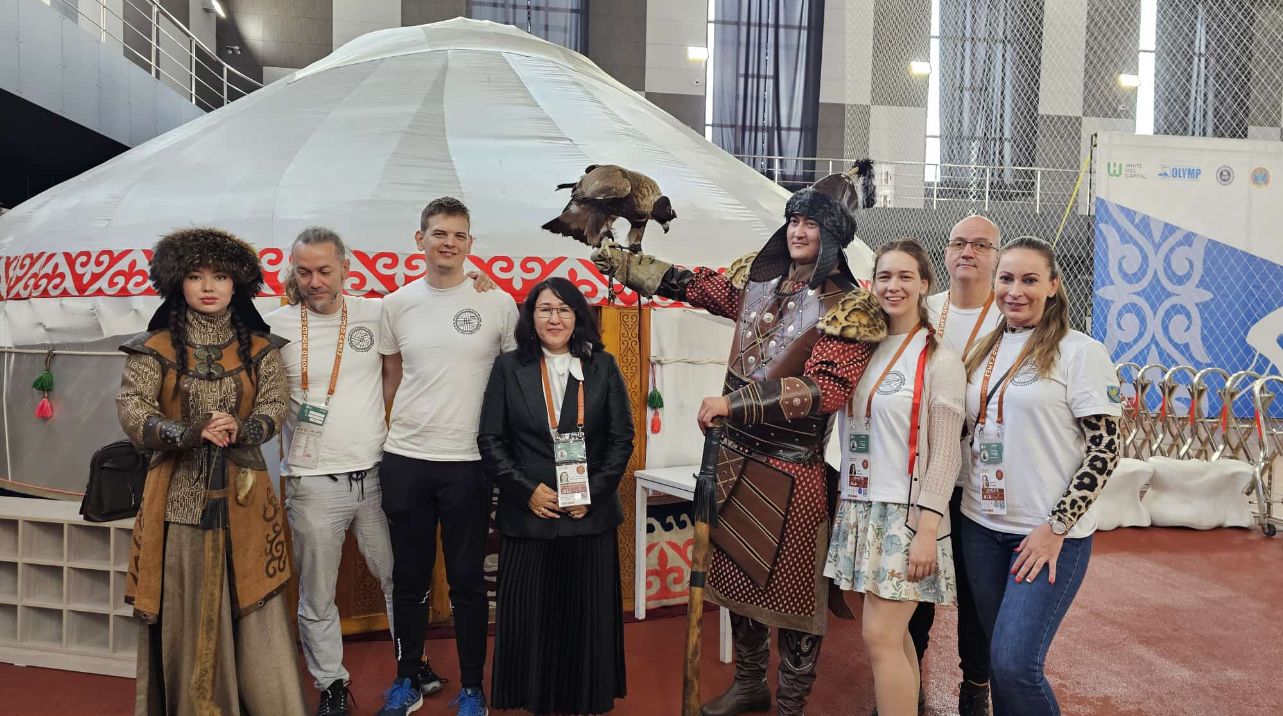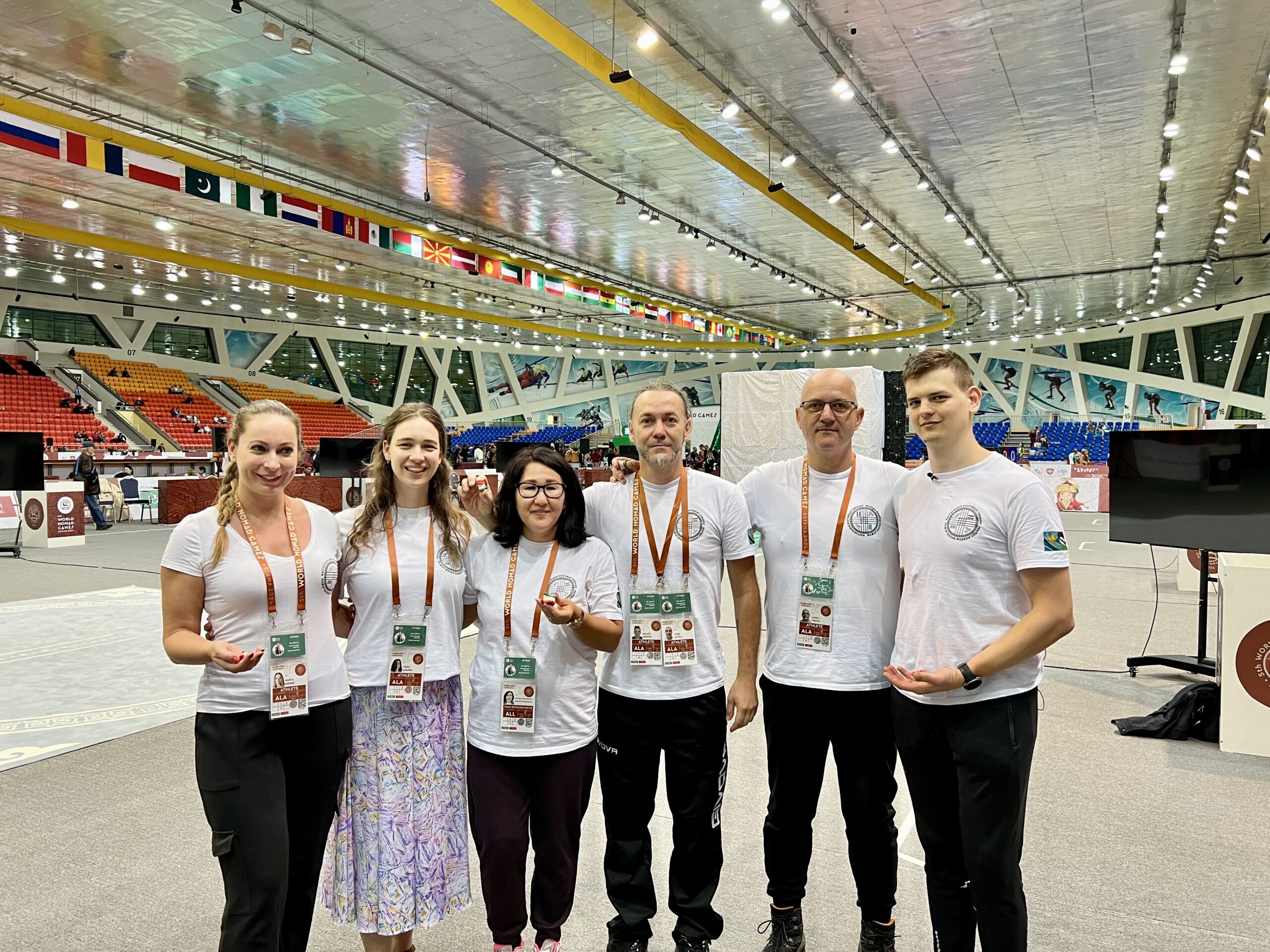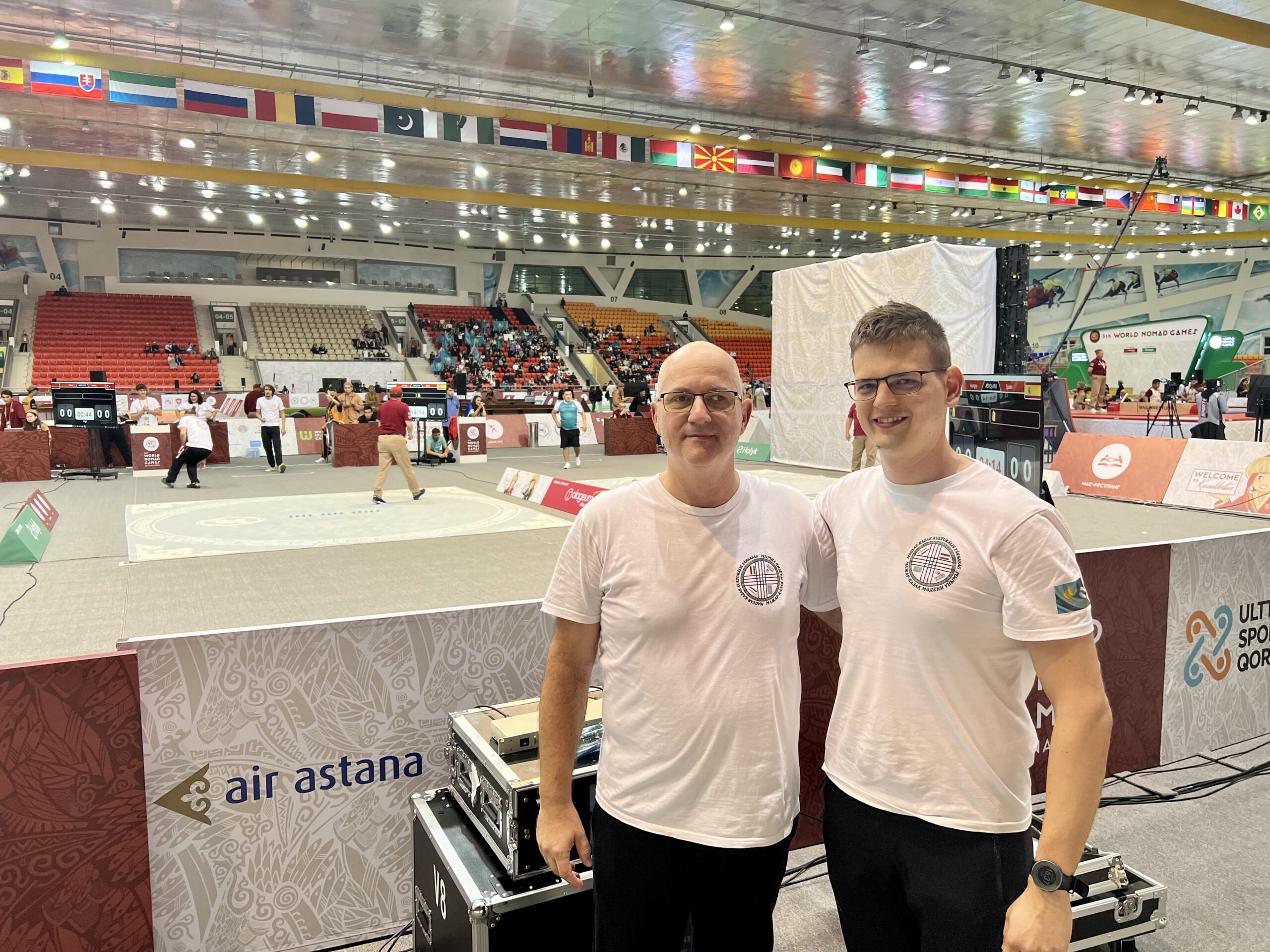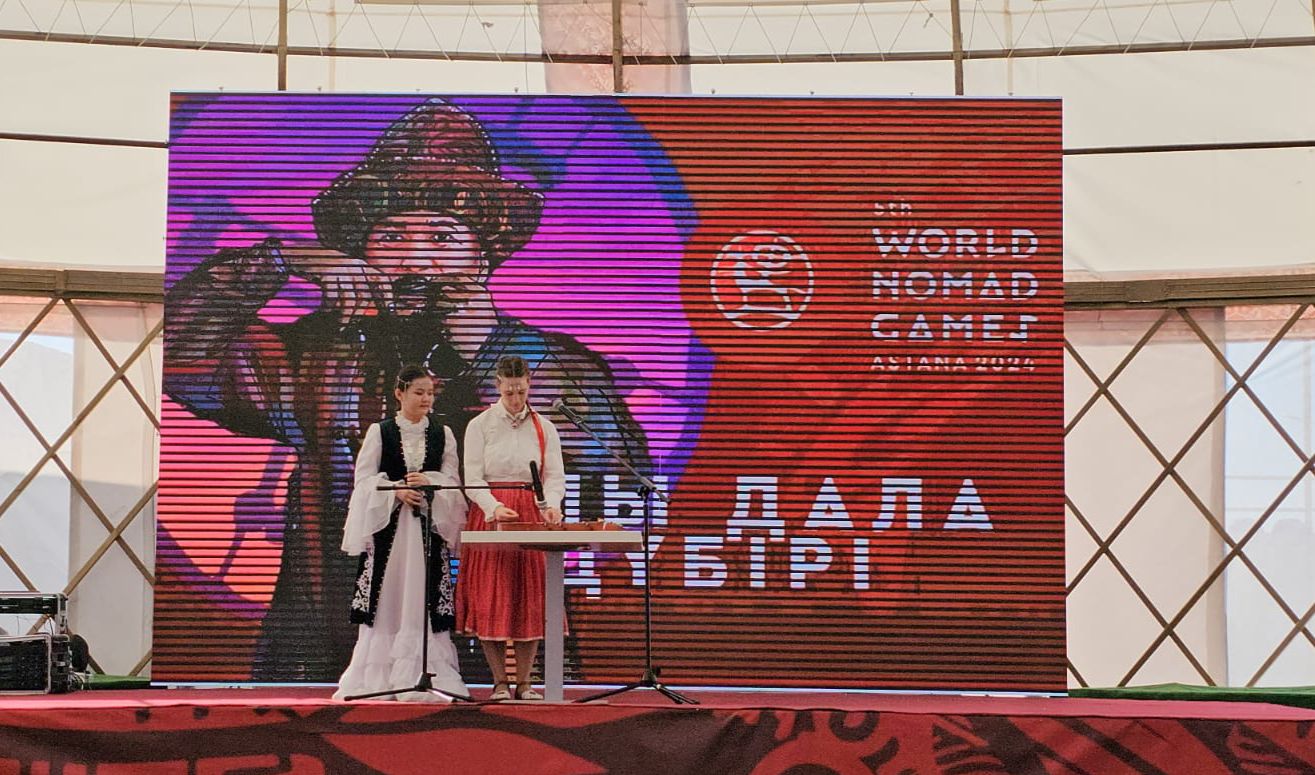ASTANA — The Hungarian-Kazakh Cultural Organization’s assyk team from Hungary, led by Zhanargul Bakhtygereikyzy, secured a remarkable bronze medal at the fifth World Nomad Games (WNG). In an interview with The Astana Times, Bakhtygereikyzy and her team recounted their journey to the WNG. Despite being newcomers to the sport, they brought a piece of Kazakh heritage to the global stage, reflecting the cultural fusion between Hungary and Kazakhstan.

Assyk team from Hungary in Astana. Photo credit: Zhanargul Bakhtygereikyzy’s personal archives
A persistent and powerful Kazakh woman who moved to Hungary 14 years ago, Bakhtygereikyzy became a bridge between the two cultures. Driven by her passion for preserving and promoting Kazakh traditions abroad, she established a cultural organization in Budapest to teach the Kazakh language and traditional games.
Bakhtygereikyzy explained that Hungary has a historical game similar to assyk, known as bikazash. The last generation to play bikazash were children from the 1970s.
She noted that since the center’s opening, interest in Kazakh traditions among Hungarians has been growing. The organization aims to teach traditional games, the Kazakh language and musical instruments like the dombyra. Bakhtygereikyzy’s efforts go beyond games, touching on cultural preservation and community building.
“Although we live abroad, we shall not forget our roots, traditions and customs, which are unique to us. We shall raise awareness about it. That is my goal,” said Bakhtygereikyzy.
The road to the Nomad Games
“I cannot describe with words how I feel,” said Bakhtygereikyzy. “The World Nomad Games is not just a game for me. It is what lifts our spirit. Even though we live abroad, we must not forget our Kazakh roots, traditions, and customs.”

The Hungarian-Kazakh Cultural Organization’s assyk team from Hungary, led by Zhanargul Bakhtygereikyzy (third from left), secures bronze at the Fifth World Nomad Games (WNG). Photo credit: The Astana Times / Nagima Abuova
The Hungarian team was composed of amateur athletes, taught the basics of assyk by Bakhtygereikyzy herself. With limited resources, they trained in parks, using rocks and chalk to simulate game conditions.
“We used to train on rocks in the parks and draw lines with chalk. But that is not the same. The conditions for the game here are great,” said Bakhtygereikyzy.
Despite these challenges, they secured an honorable bronze medal, conceding to the professional teams of Kazakhstan and the Kyrgyz Republic.
Team stories and experiences
Team member Balázs Göntér shared that he had never heard of the World Nomad Games and assyk before meeting Bakhtygereikyzy.

Laszlo Visnyei and Balázs Göntér, Hungarian assyk-atu team. Photo credit: The Astana Times / Nagima Abuova
“She made the arrangements and we know her through various international connections. She was promoting the game, the language and culture to others and we were really open to it. That is how we put the team together. We are passionate about tradition, including traditional folk music and other cultural elements. It is still a small community, but we hope to grow it,” said Göntér.
Göntér explained that he enjoys the game because it requires accuracy and stamina.
“You have to run and fetch the asyk you threw, draining your energy. But you still have to be very precise to hit the target. It is truly fascinating for us,” he said.
Göntér also noted that Hungary has a game similar to assyk.
“It was popular, maybe dating back thousands of years. Boys and girls would play with spheres, throwing them to hit other balls out of a designated area to score points. It was not organized like this [WNG’s arrangements with carpets and designated areas], but they could play it on the streets or between school lessons,” said Göntér.
He also mentioned how the game could get excitingly intense. When they practiced back in Hungary, they would casually throw the assyks and did not take it too seriously. However, the excitement of the competition made the experience far more thrilling than he initially expected.
Another team member, Tímea Janurik, described how she got involved with the games and the cultural association.

Tímea Janurik and Kazakh musician perform Kazakh folk songs at the cultural concert of the fifth World Nomad Games. Photo credit: Zhanargul Bakhtygereikyzy’s personal archives
“Zhanargul found a sponsor, allowing us to come to Kazakhstan for the fifth nomad games. It is a unique opportunity for us. We started playing assyk this year, so we are still learning and improving,” said Janurik.
She explained an exciting story about how she joined the organization. As a musician and leader of a Turkic ensemble in Budapest, Janurik started playing Kazakh songs such as Akbayan and Akugai, eventually performing at the WNG’s cultural concert.
“I met Zhanargul through a Facebook video where she played a Kazakh instrument. She invited me to a Kazakh event in Budapest, where I learned about assyk, togyzkumalak and the nomad games.
A shared cultural legacy
The Hungarian-Kazakh Cultural Organization is not only a club of interest but also a testament to the power of cultural exchange and preservation. By participating in the WNG, Bakhtygereikyzy and her team highlighted the shared history and values between the Hungarian and Kazakh peoples.
“We have a similar game in Hungary. My colleagues recalled playing a game with buttons when they were kids. It shows the common roots in our cultures,” also said Janurik.
As Bakhtygereikyzy continues her work, she seeks to involve more people and raise awareness of these traditional games.
“Significant work has already been done, and even more is yet to come. If we do some research and transmit it to the broader audience, assyk can become very popular in Hungary, ” she said.
In her revelations, Bakhtygereikyzy shared that she has plans to establish an assyk and togyzkumalak federation in Hungary to give an opportunity for both kids and adults play in a good field and conditions.
“With the development and accessibility of new technologies, interests have shifted. Games like assyk are not only entertaining and engaging but also help to develop fine motor skills and strengthen eye muscles, improving eyesight and overall health by engaging various muscle groups,” she said.
